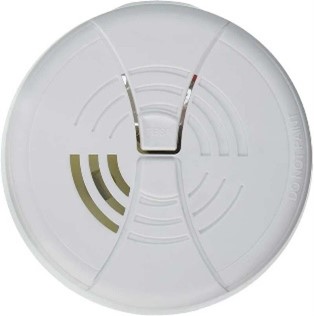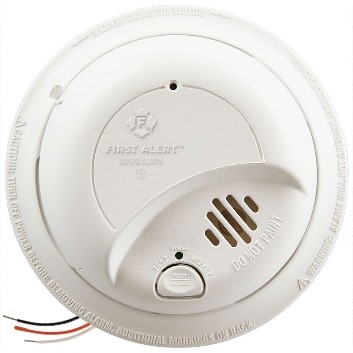1. Have you read your manufacturer’s instructions to identify what the alarm sound means? Try to identify what the alarm is telling you.
2. If you suspect that you have CO in your home, please leave the home immediately and move to a fresh air location outdoors. Make sure everyone is accounted for.
3. Call 911 or your local gas company.
4. Do not reenter the house until it is safe to do so and emergency responders have given you permission.
Volunteer Opportunity:
Department Smoke Alarm Program:
In collaboration with our Community Development Department we are offering our community help with installing and replacing batteries and smoke alarms.
Supplies are limited, so we kindly request that you meet the following qualifications to receive a smoke alarm:
1. Reside in the City of Meridian
2. Not a renter. If you're renting, your landlord should provide a working smoke alarm.
3. Low-income or unable to get an alarm, and/or facing physical challenges and/or a senior on a fixed income.
We encourage residents, whenever possible to buy their own smoke alarms and batteries. This helps our team respond more quickly to your needs.
To schedule assistance, please contact Fire Administration at 208-888-1234.
Your Safety is important to us, and we're here to support you. If we can't fulfill your request, we suggest reaching out to family, friends, neighbors, or a handyman for assistance.
Smoke Alarm Information & Resources:
The Meridian Fire Department would like to emphasize the critical nature of having properly installed and functioning smoke detectors. Smoke alarms provide precious time to escape and can be the difference between life and death.
If your smoke alarm is going off, please call 911.
If your smoke alarm is chirping, we recommend asking a family member, friend, neighbor or a local handyman service for assistance.
The National Fire Protection Association offers several smoke alarm safety tips, including:
- Install smoke alarms in every sleeping room and outside each separate sleeping area.
- Install alarms on every level of the home and consider extra alarms for larger homes.
- Smoke alarms should be interconnected, so when one sounds, they all sound.
- Test all smoke alarms at least once a month and replace batteries as necessary.
- Keep smoke alarms at least 10 feet (3 meters) away from the stove to reduce false alarms.
- Consider using special alarms with strobe lights and bed shakers for those who are hearing impaired or deaf.
- Replace all smoke alarms every ten years.
New smoke alarms on the market employ different types of technology, including multi-sensing, which can detect smoke and carbon monoxide.
In the event of a smoke alarm sounding, evacuate the building immediately and stay outside.
For more information on proper smoke alarm installation and other safety tips, please visit www.nfpa.org/smokealarms.
Carbon Monoxide FAQ


